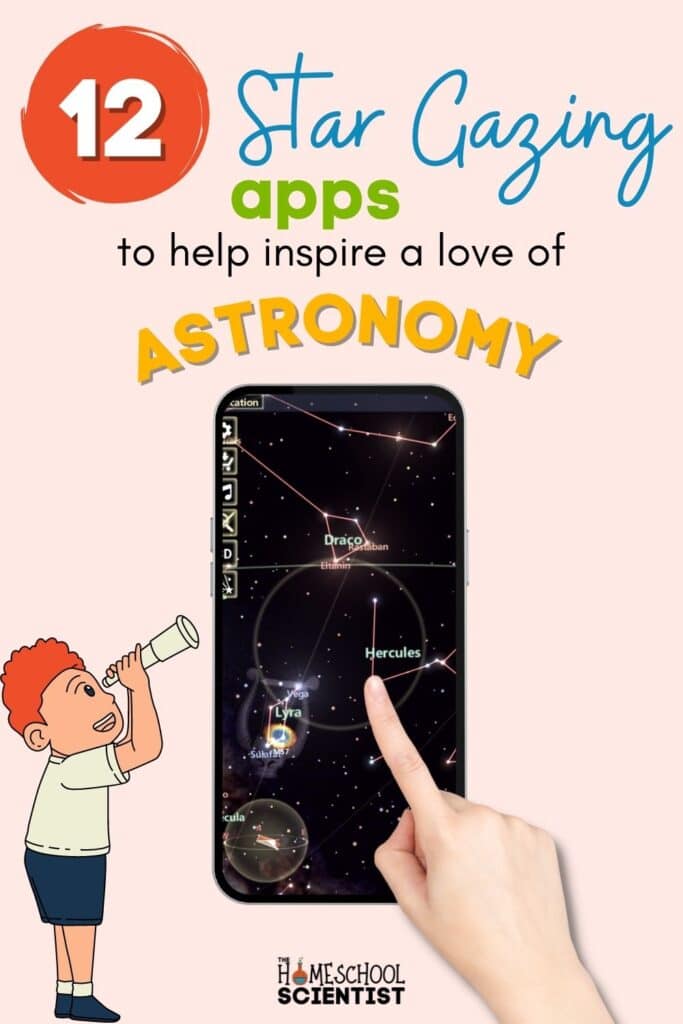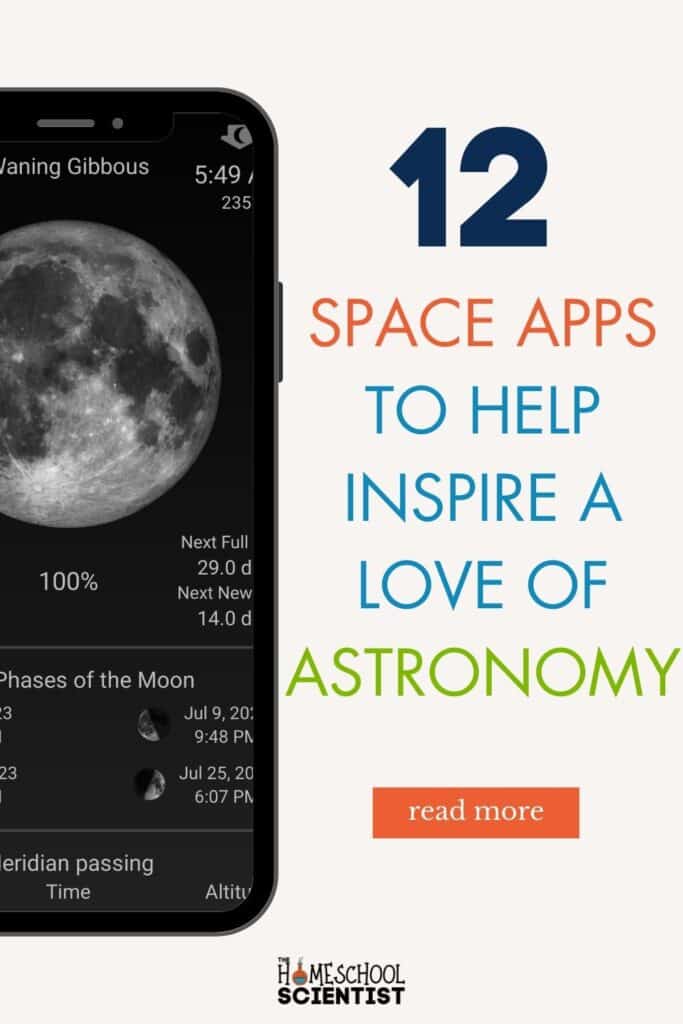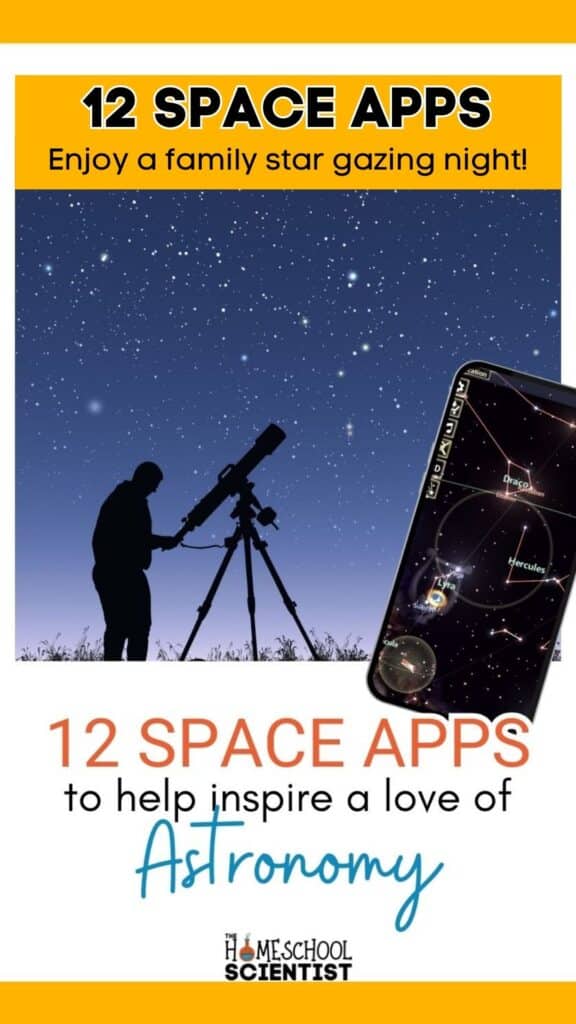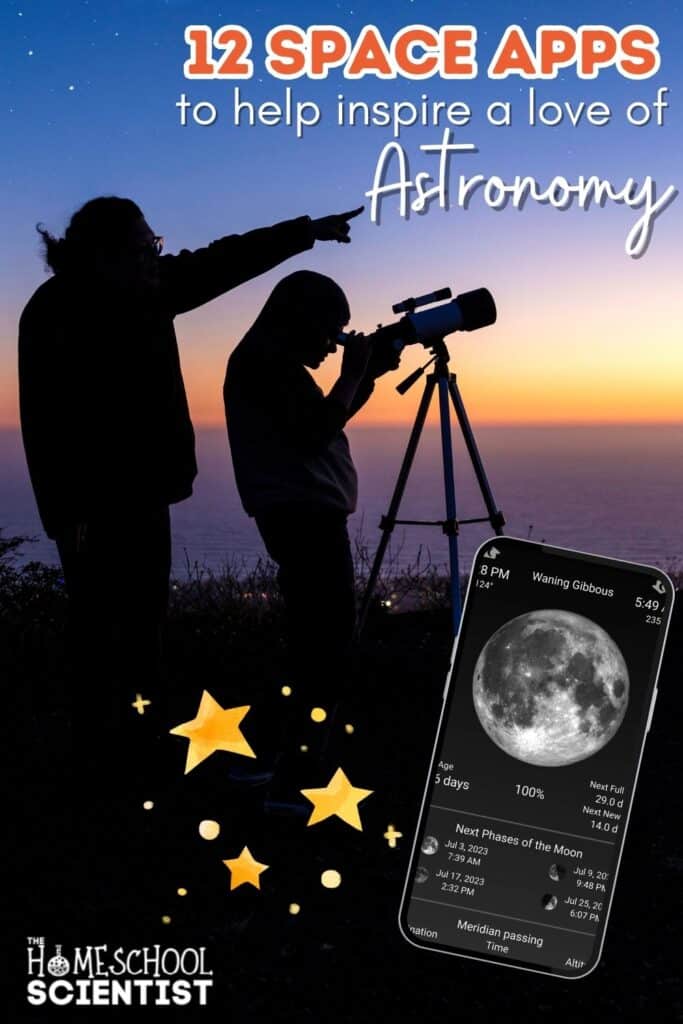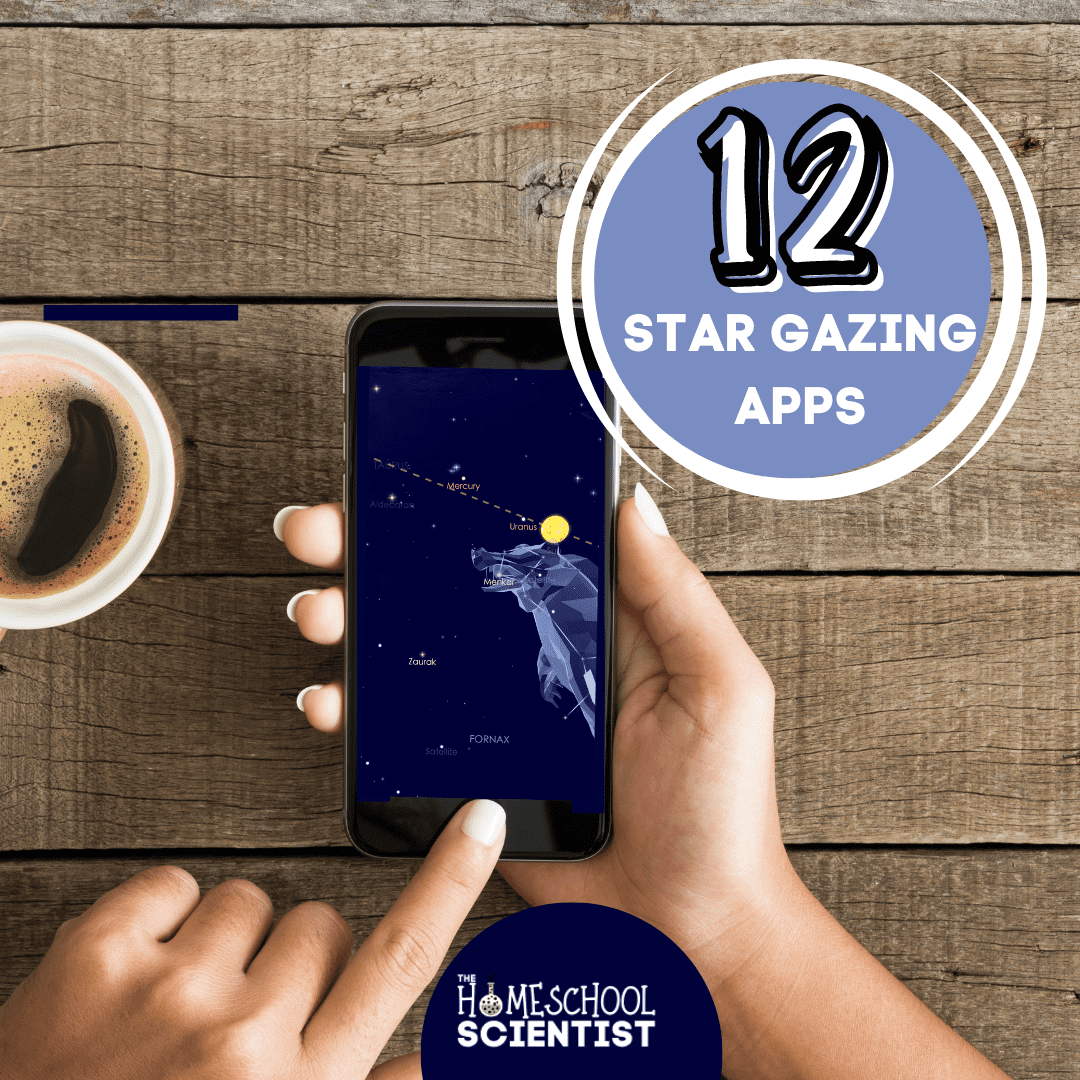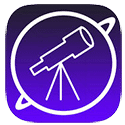12 Space Apps To Help Inspire A Love Of Astronomy
I’m always looking for apps that encourage kids to explore. Showing our kids how to make wise choices when it comes to selecting apps and using apps for learning is something we can model for them. Adding a few space apps to your child’s list of apps is a great way to ignite and inspire a love of astronomy. Best of all, space apps get them outside exploring the sky.
Best Space Apps
Space Apps #1 Solar Walk
Recommended Ages: 8 and up
Solar Walk is a 3D solar system model that allows you to navigate between planets, see their positions on a specific date, and explore how they move and why. Zoom in to study planets and satellites close-up. You’ll find extensive information on every planet including the size, mass, orbital velocity, exploratory missions, thickness of structural layers, and composition of atmosphere.
$4.99
Solar Walk is available for iOS & Android

Space Apps #2 NASA
Recommended Ages: 7 & up
This is the official NASA app. It’s packed with information on the U.S. space program and astronomy. And new information is added daily from a variety of NASA sources, including NASA’s public television channel. You won’t find ads or in-app purchases. But social sharing via Facebook and Twitter is an option. This makes it easy to share cool NASA facts.
FREE
NASA is available for iOS, Android & Kindle
Note: If your kids like the NASA app be sure to check out NASA Kids’ Club. The website has entertaining games and activities from the space agency.
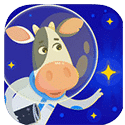
Space Apps #3 Star Walk Kids
Recommended Ages: 6–8
Many virtual astronomy apps are too complex for young children. But, that’s not the case with Star Walk Kids. The creators here have used colorful images and friendly narrators so kids as young as four can begin to recognize constellations and planets of the solar system, and grasp the fundamental principles of astrophysics. Best of all, all stars and objects in the sky are in their correct position relative to your time and location. Kids can learn more about the night sky by watching the explanatory animated movies. Watching the sky has never been so fun!
$2.29
Get Star Walk Kids in the iTunes Store
Space Apps #4 Pocket Universe
Recommended Ages: 8 & up
Pocket Universe is packed with features. My favorite feature hands down is the augmented reality view of the night sky. Pocket Universe is also has quizzes so you can test what you’ve learned. You’ll never worry about missing an astronomy sighting because you can set pop-up notifications of important events. You can try Pocket Universe free first. Then upgrade to the full version.
$2.99
Get Pocket Universe in the iTunes Store.
Space Apps #5 SkyView® Explore the Universe
Recommended Ages: 8 & up
SkyView® Explore the Universe Works in much the same way as Pocket Universe, but for Android users. This app gives you a detailed, annotated window into the night sky. One feature I love is the “Time Travel” option. This option gives you a view the sky as it looked in the past. It also shows the future view.
$1.99
Get Sky Map in the Google Play Store

Space Apps #6 SimpleRockets
Recommended Ages: 8 & up
SimpleRockets is a space-science physics game. Kids don’t explore our solar system. Instead, they explore a virtual solar system called “smolar system.” But, don’t discount the educational value of the app. In SimpleRockets kids can create their own rockets, explore solar system planets in sandbox mode, and participate in flying, orbiting, and landing competitions in challenge mode. Kids learn about engineering and physics in a creative way. And, they learn great inventions means trial and error along the way.
$2.99
SimpleRockets is available for iOS, Android, and Kindle.
Add a few space apps to your family’s list of apps. Then, head outside for a family night of stargazing!
Space Apps #7 Star Tracker – Mobile Sky Map & Stargazing Guide
Star Tracker helps with the identification of planets, 88 constellations, and over 8,000 stars.
The base version is free; the premium is $2.99
Space Apps #8 The International Space Station App
Provides the location of the ISS, so you can spot it as it flies by your area. There is an alarm feature that will notify you a few minutes before it passes over head. Also includes information on comets, planets, and satellites. In app purchases for add-ons is available.
Space Apps #9 Sky Safari 6.0 Pro
Sky Safari is an outstanding app that is for the serious star gazer. You can read a detailed review on Space.com
There is a $19.95 price tag.
Space Apps #10 Astropheric
This is a star gazing and weather app. Using the astronomy data produced by the Canadian Meteorological Center, NOAA, and others, Astrospheric produces a highly accurate 48 hour forecast for any location in the continental United States or Canada.
The app overlays cloud cover and light pollution to help star gazers determine the best window of time for celestial viewing.
Free and in-app purchases available
Space Apps #11 The Moon Phases App
Complete lunar calendar app. Lists data from 11 AD to 2100 AD.
Space Apps #12 Sky Tonight
This is a favorite app at The Homeschool Scientist. The app lists what’s happening in the sky on any given night. Also shows cloud cover and light pollution. Also lists real-time position of any sky object. Has historical data and extended information about sky objects.
Do you have a favorite space app? Share it with us!
More Astronomy Resources From The Homeschool Scientist
Meteor Explanations And Viewing Tips
Hidden Figures Unit Study Resources
I hold a master’s degree in child development and early education and am working on a post-baccalaureate in biology. I spent 15 years working for a biotechnology company developing IT systems in DNA testing laboratories across the US. I taught K4 in a private school, homeschooled my children, and have taught on the mission field in southern Asia. For 4 years, I served on our state’s FIRST Lego League tournament Board and served as the Judging Director. I own thehomeschoolscientist and also write a regular science column for Homeschooling Today Magazine. You’ll also find my writings on the CTCMath blog. Through this site, I have authored over 50 math and science resources.



